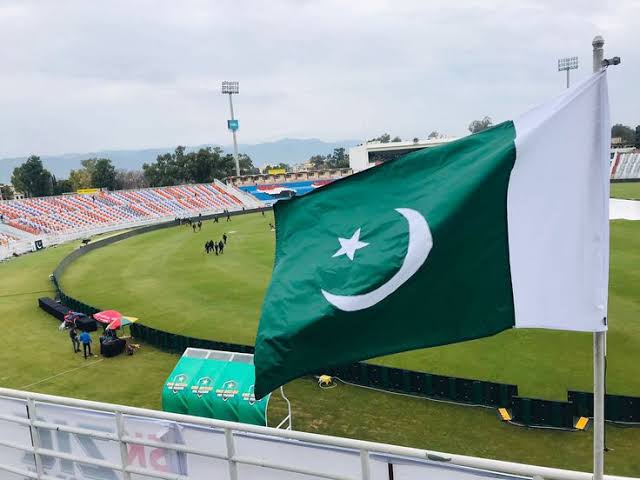
To no one’s surprise, Pakistan’s Ministry of Foreign Affairs have finally cleared their men’s cricket team to travel to India for the ODI World Cup, to be held in October-November. In an official media release, the Pakistan government spoke of not mixing sport and politics. That was especially ironic because the release was loaded with political rhetoric.
“Pakistan believes that the state of bilateral relations with India should not stand in the way of fulfilling its international sports-related obligations,” said the statement. “Pakistan’s decision shows its constructive and responsible approach vis-à-vis India’s intransigent attitude, as the latter had refused to send its Cricket Team to Pakistan for the Asia Cup.”
Just so we’re clear, Pakistan is not doing India a favour by sending their team to the World Cup. The PCB will get their share of revenue for participating in the showpiece event. Failure to send a side would have had huge repercussions for the future, even with their own sponsors, who plan their campaigns around such marquee events.
As for India’s ‘intransigent attitude’ which saw it refuse to send its team to play the Asia Cup in Pakistan, that stems for more than two decades of political turmoil in the country, as a result of which there was no international cricket played there for the best part of a decade.
The Pakistan government also had the audacity to express “deep concerns about the security of its Cricket Team” in India – a country which is now a hub for major international sporting tournaments, not restricted to cricket. After the Covid years, tourism is once again booming, and no government is issuing advisories asking its citizens to stay away from India. The converse is certainly not true. When Imran Khan, former Prime Minister and World Cup-winning captain, has been attacked, how on Earth are India’s cricketers expected to feel secure in the country?
After the terrorist attack on the Sri Lankan cricket team in Lahore in 2009, others refused to travel to the country. Pakistan has time and again boasted about ‘presidential level’ security for visiting teams and players, but what about the local security lapses? Bomb blasts and terror attacks are still a routine occurrence.
In July, the country witnessed two bomb blasts, one in Peshawar (July 12) and another in Quetta (July 7). These came close on the heels of attacks in Karachi (June 23) and Lahore (June 30). In that same period, Pakistan’s footballers were in India for the SAFF Championship. Their hockey players are currently in Chennai for the Asian Champions Trophy. The “deep concerns about the security” are not applicable to those athletes?
India-Pakistan bilateral contests have more or less ground to a halt since Pakistan-based terrorists attacked Mumbai on November 26, 2008. A generation of great players have played out their careers without even a Test match against their biggest rivals. That is the reality.
Pakistani cricketers, from Imran to Wasim Akram and Shoaib Akhtar, have always spoken of the warmth with which they’re received in India. That won’t be any different now, when Babar Azam leads his team across the border. The foreign ministry and whoever drafted the release can rest assured that the players will thoroughly enjoy the hospitality, the world-class cricket stadiums and the festive season vibe in India.
Sport and politics are inseparable. They always have been. What sport, and this World Cup, doesn’t need is fork-tongued hypocrisy.




